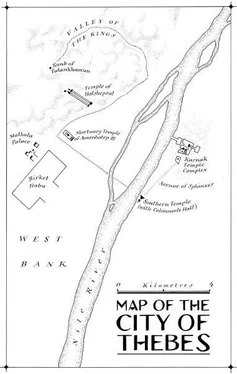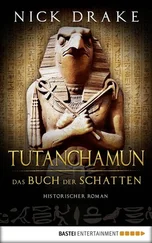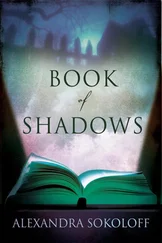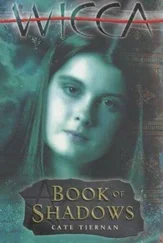Nick Drake - Tutankhamun - The Book of Shadows
Здесь есть возможность читать онлайн «Nick Drake - Tutankhamun - The Book of Shadows» весь текст электронной книги совершенно бесплатно (целиком полную версию без сокращений). В некоторых случаях можно слушать аудио, скачать через торрент в формате fb2 и присутствует краткое содержание. Жанр: Исторический детектив, на английском языке. Описание произведения, (предисловие) а так же отзывы посетителей доступны на портале библиотеки ЛибКат.
- Название:Tutankhamun: The Book of Shadows
- Автор:
- Жанр:
- Год:неизвестен
- ISBN:нет данных
- Рейтинг книги:4 / 5. Голосов: 1
-
Избранное:Добавить в избранное
- Отзывы:
-
Ваша оценка:
- 80
- 1
- 2
- 3
- 4
- 5
Tutankhamun: The Book of Shadows: краткое содержание, описание и аннотация
Предлагаем к чтению аннотацию, описание, краткое содержание или предисловие (зависит от того, что написал сам автор книги «Tutankhamun: The Book of Shadows»). Если вы не нашли необходимую информацию о книге — напишите в комментариях, мы постараемся отыскать её.
Tutankhamun: The Book of Shadows — читать онлайн бесплатно полную книгу (весь текст) целиком
Ниже представлен текст книги, разбитый по страницам. Система сохранения места последней прочитанной страницы, позволяет с удобством читать онлайн бесплатно книгу «Tutankhamun: The Book of Shadows», без необходимости каждый раз заново искать на чём Вы остановились. Поставьте закладку, и сможете в любой момент перейти на страницу, на которой закончили чтение.
Интервал:
Закладка:
We passed through the guard station, and entered the royal quarters. Somewhere, a door slammed in the dark, and a young man’s light voice called out a tremulous command. Lowered voices, insistent and persuasive, tried to calm him. Another slam of a door, and all returned to the tomb-like silence. Khay, alert to the meaning of these signs and wonders, hurried forward on his costly and immaculate sandals, until we arrived once more at the great double doors into Ankhesenamun’s chamber. Khety glanced at me, his eyebrows raised, amused at the situation in which we found ourselves. Then the doors suddenly opened to admit us.
Inside, nothing had changed. The lights burned in the same places. The doors remained opened to the courtyard and its garden. Ankhesenamun, guarded by a soldier, was sitting very still, staring at a small, closed wooden box that was set on a low tray on the far side of the room, as if she was mesmerized. When we entered, she turned slowly to look at us; her hands gripped each other tightly, her eyes glittered.
The box was no bigger than that which might contain a wig. It was tied with a cord knotted to a complex, interwoven design. Interestingly, it seemed more like a magical knot than a practical one. The conundrum of it-the maker’s fascination with frustrating, perhaps demented puzzles-seemed alarmingly all of a piece with the strange mysteries of the last days. Instead of unknotting the cord-for it was evidence, and the meaning of its design might be recognized by Nakht-I cut it. I lowered my head to the lid of the box, and caught the faintest of sounds; within, something was moving, toiling almost, on the very edge of the audible, even in the hush of the chamber. I glanced at Khety and Khay, and then very carefully lifted off the lid. The sweet stench of rotting meat billowed into the room. Everyone backed quickly away, holding their linens over their noses.
I forced myself to look into the box. White maggots moved through the eye-sockets, nose, ears and jawbones of a human head. I saw a pair of collarbones, some vertebrae knotted together on another length of cord, and some much smaller skulls, belonging to birds or rodents. Bones of all sorts-clearly animal bones as well as human ones-had been jumbled together to create this vile death mask. Death masks are usually made from precious gold to represent the dead to the Gods; but this one had been deliberately composed as a kind of anti-mask, made of the butcher’s leftovers. But there was one piece of gold here: a necklace on which a name had been inscribed in a royal cartouche. I plucked it out with some tongs that stood nearby. The hieroglyphs read: Tutankhamun .
I examined the box itself; around the lid, inside and out, strange symbols, curves, sickles, dots and sharp lines, like a kind of nonsense writing, had been carved and then painted in black and red. I did not recognize the language at all. It looked like the language of a curse. I thought I would not want to hear such words spoken aloud. I would not want to meet the man whose speech these signs represented. I imagined a monster. And there at the centre of the inside surface of the lid was carved an image I recognized at once: a dark circle. The Sun destroyed.
Khay, holding a linen cloth fastidiously over his nose and mouth, approached reluctantly, glanced at the contents of the box, and then slipped away as if the ground was suddenly uneven. The soldier walked determinedly over and gazed at it with military self-discipline. He moved aside for Ankhesenamun. Khay tried to dissuade her from looking inside, but she insisted. Standing close to me, she struggled with her reaction to the smell, and then bravely her eyes plunged into the shambles in the box. She could take no more than a few moments.
But suddenly the great doors were thrown open, with a cry of frustration, and a young man, with a beautiful, almond-shaped face and small, delicate features, burst into the chamber. He hobbled slightly, leaning for light support on an elegant walking cane. A dazzling gold pectoral hung over his slim shoulders. Fine linens clothed his body, which was slim, but wide around the waist. A small, chattering monkey on a golden chain scampered at his feet.
‘I will not be treated like a child!’ shouted Tutankhamun, Lord of the Two Lands, Image of the Living God, at the silent chamber.
Khay and the soldier moved in front of the box, and tried to persuade him not to approach it, without actually daring to touch his royal body physically. But despite his slight infirmity, he was too quick for them; he moved as deviously and quickly as a scorpion. He gazed at the carvings, and then down at the rotting image. At first he seemed mesmerized by what he saw-by the corruption of it. Then as he began to interpret it his expression changed. Ankhesenamun took his hands in hers and, speaking softly and carefully to him, more as an older sister, perhaps, than a wife, persuaded him to move away. He glanced up at me, and I saw he had his father’s eyes, almost feminine, but with an expression that was both openly innocent and potentially, vicariously, vicious. He saw the necklace with the royal name, and snatched it from my hand. I lowered my gaze quickly, remembering the protocols of respect.
As I waited, my eyes trained on the floor, I thought how much more interesting Tutankhamun looked from close quarters. From a distance he had seemed as insubstantial as a reed. But at close quarters, he was charismatic. His gleaming skin evoked the life of someone who rarely appeared in the open air, in harsh sunlight. He seemed more a creature of the moon. His hands were exquisite and immaculate. And something about the long proportions of his limbs seemed to be all of a piece with the burnished elegance of his gold collar, his gold jewellery and his gold sandals. In his presence I felt earthbound; he seemed like a rare species that could only survive in a carefully protected environment of shade, secrecy and utter luxury. I would not have been surprised to see beautiful feathered wings folded beneath his shoulder blades, or tiny jewels among his perfect teeth. I would not have been surprised to hear he only sipped water from a divine source. But I would also not have been surprised to hear he lived in a child’s nursery, with the doors shut firmly against an outside world whose demands he refused to acknowledge. I could see at once how terrified he was; and I understood then that the man behind both ‘gifts’ knew this very well. Tutankhamun threw the necklace aside.
‘This abomination must be removed from our sight and destroyed by fire.’
His voice, although quivering, was airily modulated, with a delicate timbre. Like many who speak quietly, he did it for effect, knowing he created the circumstances in which others strained to hear his every word.
‘With respect, majesty, I would advise against its destruction. It is evidence,’ I said.
Khay, the ultimate guide to etiquette, gasped at my breach of protocol. And I wondered if the King was going to scream at me. But he seemed to change his mind. Instead he nodded, lowered himself on to a couch, and sat hunched over. Now he looked like a haunted child. In my mind’s eye I saw the world from his point of view: he was alone in a palace full of shadows and terrors, of threats and secrets and conflicting strategies. The temptation was to pity him. But that would not do.
He motioned for me to approach. I stood before him, my eyes lowered.
‘So you are the Seeker of Mysteries. Look at me.’
I did so. His face was unusual; delicate planes and structures, with wide cheekbones that seemed to frame the soft but persuasive power of his large, dark eyes. Lips full and sensuous, above a small, slightly receding chin.
‘You served my father.’
‘Life, prosperity and health, lord. I had that honour.’
Читать дальшеИнтервал:
Закладка:
Похожие книги на «Tutankhamun: The Book of Shadows»
Представляем Вашему вниманию похожие книги на «Tutankhamun: The Book of Shadows» списком для выбора. Мы отобрали схожую по названию и смыслу литературу в надежде предоставить читателям больше вариантов отыскать новые, интересные, ещё непрочитанные произведения.
Обсуждение, отзывы о книге «Tutankhamun: The Book of Shadows» и просто собственные мнения читателей. Оставьте ваши комментарии, напишите, что Вы думаете о произведении, его смысле или главных героях. Укажите что конкретно понравилось, а что нет, и почему Вы так считаете.











